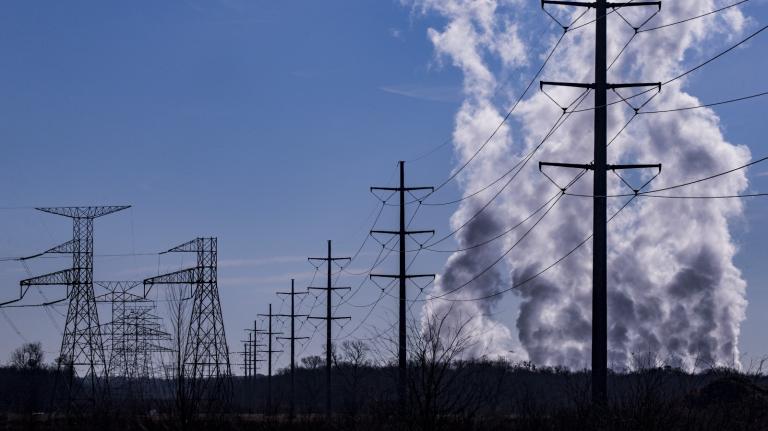This is the year that mountaintop removal ends.
This is the year we begin the just transition in the coalfields — climate ground zero — with a real commitment to sustainable economic development for a clean energy future.
This is what we know: Mountaintop removal provides less than 8-10 percent of all national coal production, while utilities coal stockpiles have increased during the summer for the first time in 25 years; while absentee coal companies slash mining jobs and idle higher-cost mines to keep their stock holders happy in a period of slumping demand; and, as recent U.S. Geological Survey estimates place “peak coal” production as early as 2020.
In the meantime, this absolutely unnecessary process of strip mining has devastated the peace and prosperity of a region for over a generation — thousands of Americans have been forced to relocate from their ancestral properties, communities and their watersheds have been poisoned by heavy metals and toxic pollution, 500 mountains and 1.2 million acres of hardwood forests in the carbon sink of Appalachia have been blown to bits, and nearly 2,000 miles of headwater streams and waterways have been jammed with mining waste.
To understand the scope of the destruction on American soil, every American should watch filmmaker extraordinaire Chad Steven’s video, Leveling Appalachia.
This is what we also know: The well-meaning EPA has suspended various mountaintop removal permits, but still lacks the resolve and ultimate authority to abolish this reckless form of mining operation, despite indisputable Clean Water Act violations; the Office on Surface Mining Reclamation Enforcement lacks the resolve to reverse the Bush administration’s blatant manipulation of the Stream Buffer Zone before 2011, and President Barack Obama, despite his presidential campaign promises to find another way of mining coal without blowing up our nation’s oldest mountain range and historic communities, lacks the resolve to halt the most egregious human rights and environmental violation in our nation.
In the meantime, investment for green jobs and clean energy is desperately needed in the Appalachian coalfields, as part of a just transition: Every coal miner deserves a right to a sustainable livelihood. This means that coalfield residents, like all Americans, deserve a road map for a feasible transition to clean-energy jobs — including a Coal Miner’s GI Bill for retraining and a massive reinvestment in sustainable economic development in coalfield communities — before we reach a point of no return.
The last hope now remains in the U.S. Congress, where the Clean Water Protection Act in the House and the Appalachian Restoration Act in the Senate, moves swiftly along with a growing number of co-sponsors.
Last February, U.S. Rep. Frank Pallone Jr. brilliantly spelled out the situation on the Congressional Floor
This is not just another environmental issue — it’s a matter of justice and fundamental human rights — the right of all people to live free from the fear that a boulder might kill their child in the middle of the night; the right to send your children to a school not threatened by billions of gallons of coal slurry; the right to preserve the streams and valleys that have been part of their way of life; and the right to protect their own land, no matter how much coal might be underneath.
This legislation would amend the Clean Water Act to clarify that toxic rubble created by mountaintop removal coal‐mining cannot b e defined as ”fill material” and dumped into the headwater streams of Appalachia.
It is simply inappropriate to allow the excess spoil from this type of mining to be dumped in mountain streams where it can pollute waterways, fill valleys, and in some cases, potentially endanger the lives of area residents.
I believe that the federal government has a responsibility to protect these rights, not to give massive mining companies a free pass to dump their waste into a nearby stream.
We can no longer allow the coal industry to dictate our environmental policy with regard to Mountaintop Removal.
If you wish to end mountaintop removal this year, join the incredible I Love Mountains Campaign — an alliance of the coalfields citizens groups on the frontlines of our nation’s most important clean energy and climate battle — and find out how you can help, how you can donate, and most importantly, how you can make sure your members of Congress are supporters and co-sponsors of these historic bills.
2010 — the year mountaintop removal finally ends.



